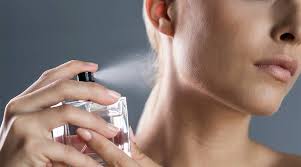Are Fragrances the Cause of Your Skin Allergies? Here's What Dermatologists Say
Living in a contemporary society with advanced information delivery, we have access to more skincare content than ever before. We're becoming more aware of the ingredients we want to put on our skin and, just as importantly, the ones we don't. Some skincare ingredients are already universally embraced by skin care experts, editors, and enthusiasts -- like hyaluronic acid, retinol, and vitamin C, while others aren't so much. Ingredients for consumers to be especially wary of include parabens, phthalates and (perhaps one of the most controversial) fragrances.

Why do fragrances attract some people's attention?
Some people think it's better to be safe than sorry and even swear off scented skincare products. But I have to wonder, is this really necessary? Follow COOSEON to read on to find out from a leading dermatologist.
What exactly does "flavor" on an ingredient label mean?

Many people may not know that "flavour" is an ambiguous term. It does not refer to a specific ingredient. Instead, it refers to the various cosmetic ingredients that may make up a product's fragrance. The reason for this all boils down to the fact that it has the potential to cause irritation and damage to our skin, so given this concern, this is an issue for anyone with sensitive skin (like you). So basically, it's more of a category than an essential ingredient.
Chris Tomassian, MD, is the Chief Dermatology Resident and the foremost authority on DermTok. "A lot of times, it just states 'fragrance' on the ingredient list, not the individual ingredients. Many products will be labelled 'fragrance-free'. However, this may still mean the presence of masking fragrances in the product, and you may Can be allergic to it." That's why he recommends looking for the term "fragrance-free" rather than "fragrance-free."
Are fragrances really as harsh as they are made out to be?

According to Tomassian, the answer is not necessarily "yes" or "no. On the contrary, it could be." Perfumes are a very common culprit when it comes to allergic and irritating rashes," he explains." Fragrances have the potential to stimulate an immune response, causing redness, swelling, blisters and itching. This is more common in people with a compromised skin barrier like eczema. Another cause is improper storage leading to spoilage of fragrances, which can cause damage to the skin after use. In the latter case, consider storing them in a mini skincare fridge."
Oh, and one more thing: many claims that a scent is less irritating if it's natural rather than synthetic. This is not true. Whether a scent is natural or synthetic, it can still cause irritation, and one isn't necessarily better than the other, Tomassian said.
Natural fragrances include essential oils, which are used in many skin care products for fragrance and other formulation benefits, such as their antibacterial properties. Even though they are 100% plant-derived, they can still be irritating. This shows that the natural versus synthetic debate is moot regarding fragrance.
Should I avoid fragrances if I have sensitive skin?
So, what is the conclusion? Is cutting out all the fragrances really the best way for sensitive skin? The answer is not as straightforward as some might think, Tomassian said. "Generally, if you have sensitive skin, I would say only use fragrance-free products," Tomassian says. "However, many people love scented products' scent and experience.

In other words, it's up to the individual. If the sensory experience of scented skincare appeals to you and leads you to better care for your skin in a consistent way, then do it. It's also worth noting that just because fragrances are generally more irritating doesn't automatically mean that every scented skincare product will irritate you. Everyone's skin is unique, as are their skincare routines and preferences. It would be inaccurate to say that the scent is good or bad. It depends. If you have sensitive skin, though, Tomassian recommends testing fragranced products before jumping in and applying them directly to your face. "For sensitive skin, I would say always test one area before using it all over the body. The inside of the upper arm is a good place to do a sampling test."
This is your view. When it comes to fragrance in skincare, there is no correct answer. It all comes down to personal preference. That being the case, some people like to avoid fragrances in their skincare routine, and that's okay too.
Learn more about skincare at : cooseon.com
















